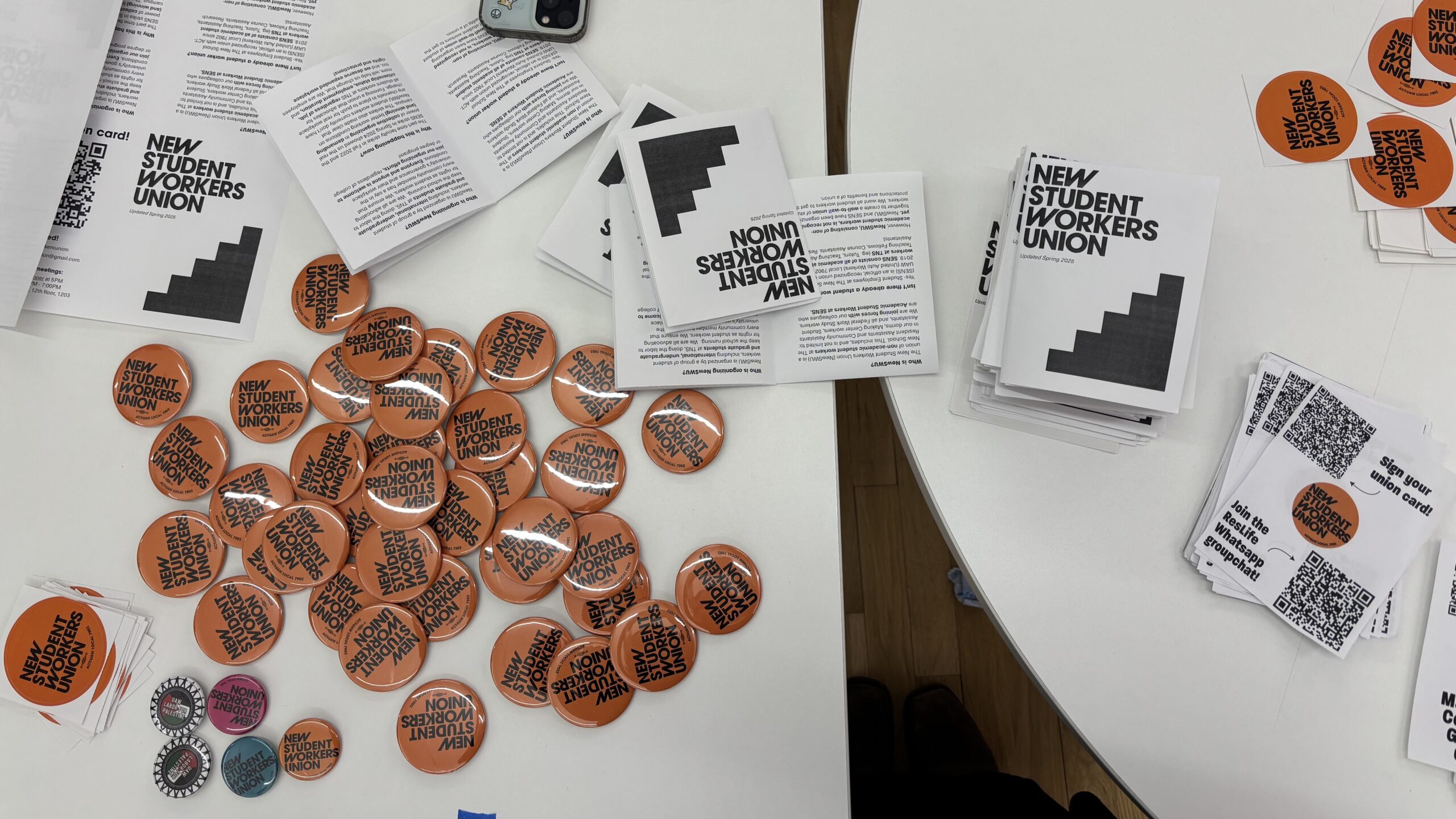Love, Lucy is the New School Free Press’ weekly advice column, where editors share thoughtfully researched solutions to questions about your life. Send submissions via email to nsfplovelucy@gmail.com or through Love, Lucy’s official Google Form.
“One of my family members has been in a toxic relationship for three years now and she’s very young. He recently cheated on her for the seventh time and she cried a lot but later on went back to him and did things… I told her she needs to start giving herself more respect because every time she takes him back she loses respect for herself and him and as someone who loves her I can’t see her being hurt by the same guy over and over again. Do you think this is me controlling her?” – E.S.
Dear Reader,
Firstly, my condolences to your family member, I hope they’re safe. This tale, unfortunately, is as old as time. How do you support someone in an unhealthy relationship who won’t listen to your advice? And how do you give that advice without making it seem like you are trying to control them?
Trust me reader, I’ve been there – in a myriad of ways. But remember, suggestions aren’t controlling unless you find yourself threatening them or your relationship if they don’t listen. I have a friend who continuously has gone back to someone who has really deeply hurt them. Not only were they going back to them but they were lying to me about their continued contact. I had to hear it through a mutual friend! I was very angry. I had been calling and texting them daily to provide support and it seemed like it was all in vain.
I knew my anger wouldn’t help them understand why they shouldn’t be continuing this relationship. I was worried that any conversation we had would be colored by anger and that I would be doing the opposite of helping, pushing them away from healthy support. So I had to take a break. Sometimes that’s just what the situation warrants.
It can be difficult to take a step back when you know your friend or family member is in need, but it’s important to establish clear boundaries. It can feel burdensome to repeat the same advice over and over again, and even harder to understand why your family member might stay in a bad relationship. If it gets to be too much, tell your family member that you don’t want to hear about certain things anymore or that you won’t be continuing to give them advice – but are happy to listen.
As someone who has also been in your family member’s position, having someone listen might really be all they need. But I know how exhausting this can be. It can be so hard to watch someone be unkind to themselves or someone you care about. It can be equally, if not more, arduous to tear oneself away from these types of toxic relationships, especially if they are something they have come to rely on in some way.
And reader, I mean that in the broadest sense. I think we all have one thing or another that isn’t the best for us and yet, we just can’t seem to stop. While for some of us that hot button habit isn’t quite so destructive, it still exists. Try to imagine yourself in this relationship, as uncomfortable as it may feel. Why might someone stay?
Remember that it’s likely your family member is only telling you the bad parts, which can make the reason why they might continue going back even more obscure. They could be experiencing some level of manipulation totally unknown to them. Try to discuss and understand what it is they like about their partner or relationship. Then, make an effort to help them acknowledge that the bad aspects of their relationship might outweigh the good.
Engaging in intimate relationships has been connected to the release of oxytocin, what some people call the “cuddle chemical.” In some ways, unhealthy relationships very closely resemble our neurological reactions to drugs and other types of addiction. This can make it even more painful to get out of these types of toxic or abusive relationships. If you begin to think of it that way, it can be easier to understand their continued “use” – in terms of relapse and a recovery, as a more prolonged process.
According to a 2001 study, it’s also scientifically easier — at least in the short term — for the brain to forgive others. Holding grudges is a stressor on the brain and people will often do whatever they can to avoid these stressors, even if that means being repeatedly disrespected or harmed.
All you really can do is tell them you will be there for them, continue reminding and reinforcing the idea of respect and compassion for themselves, and let them lead the way. Make sure they understand what abuse means, that they can name it and identify it, so that it doesn’t go so far as to physically hurt them. And remind them that emotional abuse is still abuse. When talking about the relationship, keep the focus on them and how they are being hurt by this, don’t go about it by insulting their partner – as it might come across as an insult to their taste and may bring up some defensive feelings. If and when a breakup happens, let them know you’re a shoulder to cry on.
I know you may feel frustrated and hurt that your family member isn’t listening to you. Try to remember that it’s not your responsibility to fix this for them – that isn’t something you can do. Trying to “fix” it for them might be crossing their boundaries. Move forward with compassion and understand that the process of undoing this relationship will be incredibly tough for your family member, and likely for you as well.
Reach out for help if you need it, and give them resources to talk to people they may be more willing to listen to. If you believe your family member is experiencing emotional or physical abuse, ask them if they’d feel comfortable talking to a professional. Maybe even offer to help set up the meeting. Sometimes it’s just easier to hear the truth from a stranger. I wish you luck.
Love, Lucy
A weekly song for your troubles:
If you are in an abusive relationship, please contact 800-799-7233 for support.








Leave a Reply